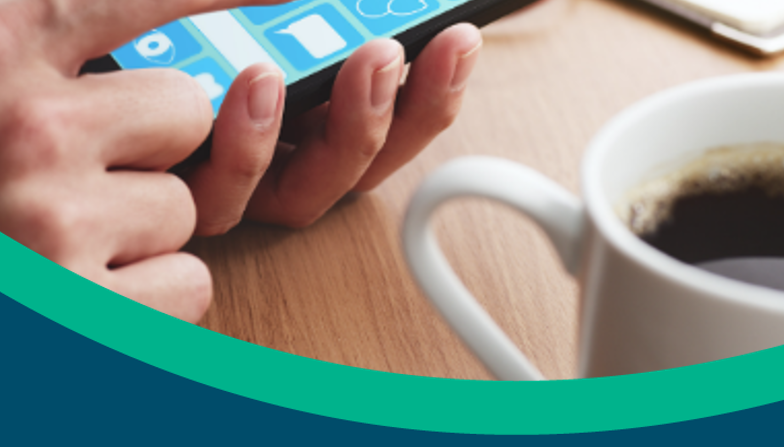Volunteers, health professionals and the local community all have a role to play in helping patients use and make the most of digital ways of keeping Norfolk healthy.
Those are the key points that emerged in a new report just published by Healthwatch Norfolk.
The organisation, which gathers the views of the public on health and social care and feeds them back to health and social care leaders, had been asked by NHS Norfolk and Waveney to look at digital access and tools like apps and websites, and how they can help in healthcare.
For the second 12 months of the three-year project, it focused on raising awareness of the different digital options that are available, and ways to help patients learn and understand how to use them.
It was also asked to find out how GP surgeries are using digital methods in an innovative way to help people, and ensure people have the information they need about Shared Care Records, which mean medical professionals all have access to information and patients and families do not need to keep repeating themselves.
Healthwatch Norfolk did this in a number of ways working with staff, communities, and Patient Participation Groups (PPGs) which are groups of patients who want to help the surgery work well by:
- Co-hosting an online event for GP practice managers and about the Digital Health Hub which means people can go into libraries and get help accessing health information online and using the NHS app on their phone.
- Find out about GP surgeries around the county who are using digital technology in innovative ways to help patients.
- Carry out focus groups to find out how people have found using the NHS app and accessing their Shared Care Record.
This work aimed to show how using this technology could help both patients and people working in healthcare in a few ways including accessing services, managing and attending appointments, ordering prescriptions, and improving communication between patients and staff.
Healthwatch Norfolk found the digital health hubs were helpful to people, particularly if they had never used a computer before, and the assistance was closely tailored to the person’s needs.
Some surgeries were also using technology in new ways including:
- Grove Surgery in Thetford which used QR codes that patients could scan on their phone and get access to useful health information, or documents such as forms they can fill in to record their blood pressure.
- Trinity Street and Bowthorpe Surgery in Norwich whose Patient Participation Group (PPG) which looked at the Footfall computer system used by the surgery to see how easy it was for patients to use and whether some of the language needed to be changed and presented their findings to NHS Norfolk and Waveney.
- Aldborough Surgery in North Norfolk which evolved its Patient Participation Group by linking with local charity Village Care to collect people’s views and set up a special area on its website to keep patients up to date with what is going on at the surgery, host surveys and receive feedback, and provide health and wellbeing tips.
Healthwatch Norfolk also found that using these digital methods and promoting them could help both patients and healthcare staff in several ways including accessing primary healthcare services, managing, and attending appointments, ordering and managing prescriptions, managing long term health conditions, and aiding communication between patients and professionals.
Based on its work, Healthwatch Norfolk is making the following recommendations:
- The NHS Digital Team should link in with support workers, social prescribers, and community connectors across Norfolk to promote the Digital Health Hub.
- Explore training and nominating a Digital Champion within GP practices or patient participation groups.
- Encourage GP practices to share innovative examples of digital tool use.
- Ensure that any digital innovation is evaluated to make sure it works well for patients, and they are happy with it.
- Make sure there is regular liaison with Patient Participation Groups to make sure people can access communication materials, and make sure these groups are involved in research and feedback.
- Create a straightforward accessible guide to the NHS app.
Alex Stewart, chief executive of Healthwatch Norfolk, said: “Improved communication is at the core of what we have heard throughout this work.
“Using apps on your phone or logging into a website on a computer is not second nature to everybody and it is important that people are aware of the incredible work being done in our libraries to help people learn and understand technology.
“There is also a lot of innovative work already going on in GP practices and many of these ideas could be taken on by others in Norfolk too. There are a lot of good things happening in GP surgeries that improve things for patients and staff alike and increased sharing of these is so important.
“Equally there is no point spending time and money on new technology if it is difficult to use or makes things more complex for patients. There is an incredible resource of volunteers in Patient Participation Groups across Norfolk who would happily check things, give feedback, and share their thoughts to help their own communities and others across Norfolk.”
“As we continue this work for another year, we will continue to work on greater awareness of these digital methods and innovative projects, talk more to those working in healthcare and the public about their awareness of them, and make sure any concerns or questions about this awareness are fed back to NHS Norfolk and Waveney.”
You can find out more and download the full report here
More information about the report is available in the video below:
There is a subtitled version of the video below:


